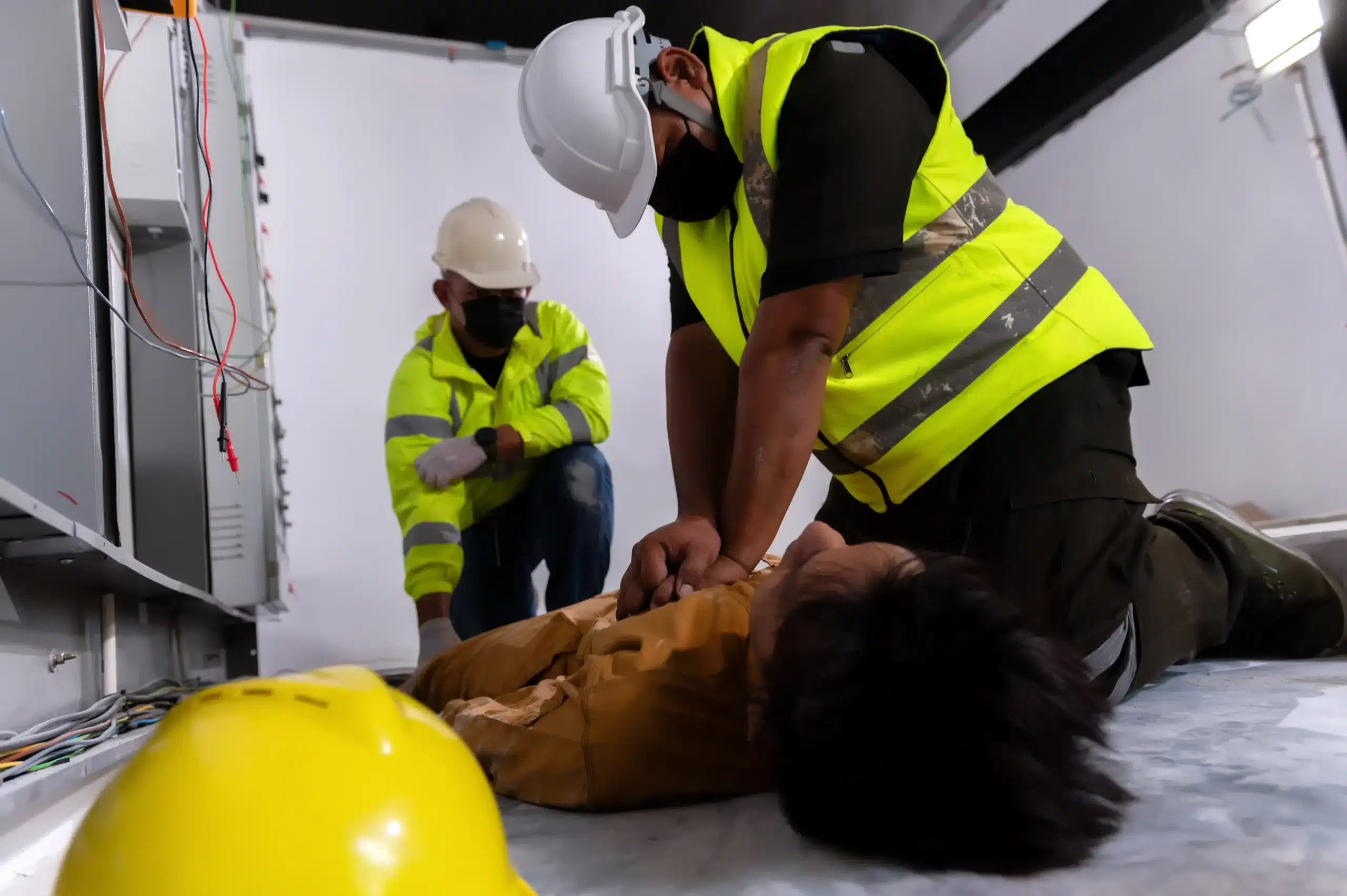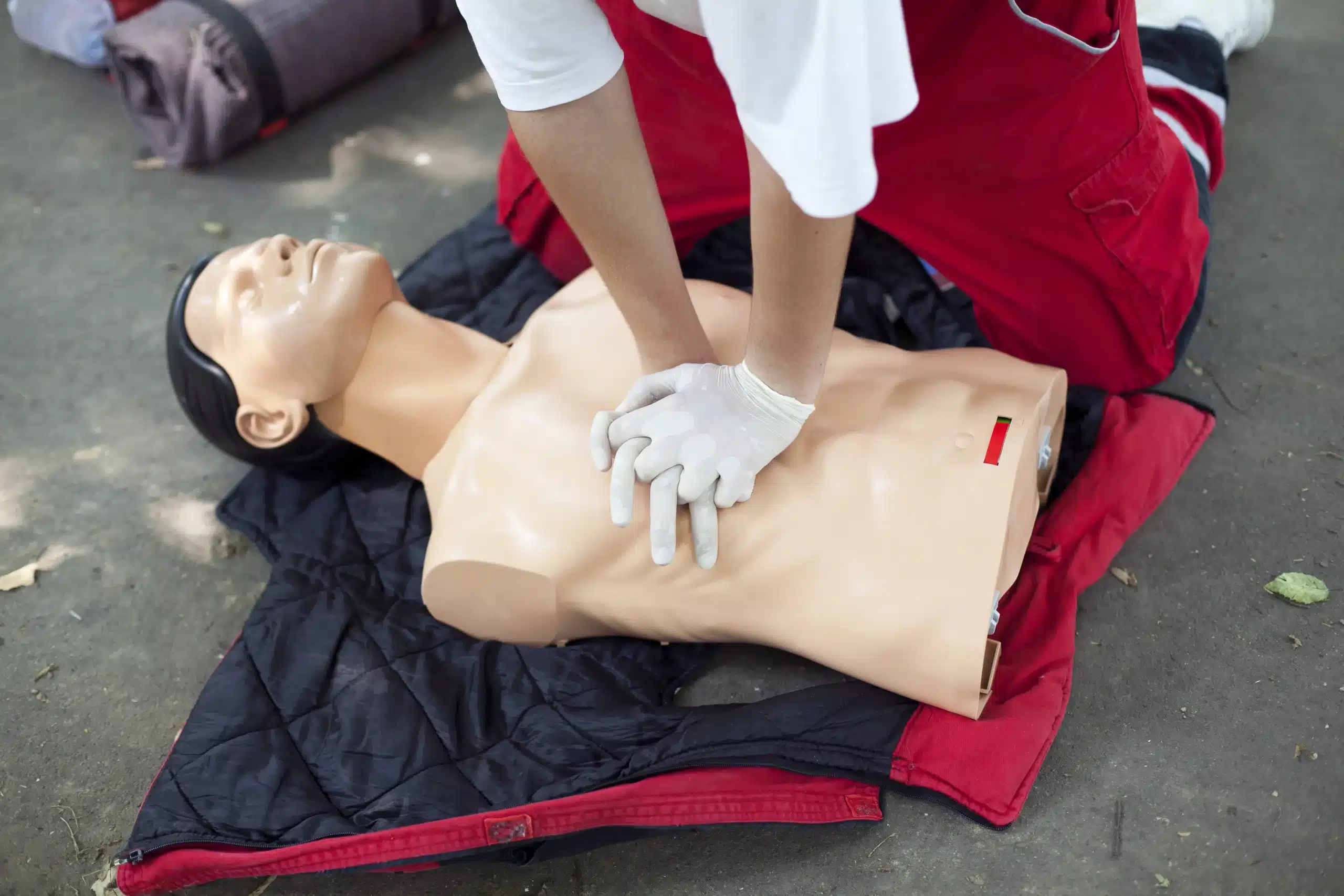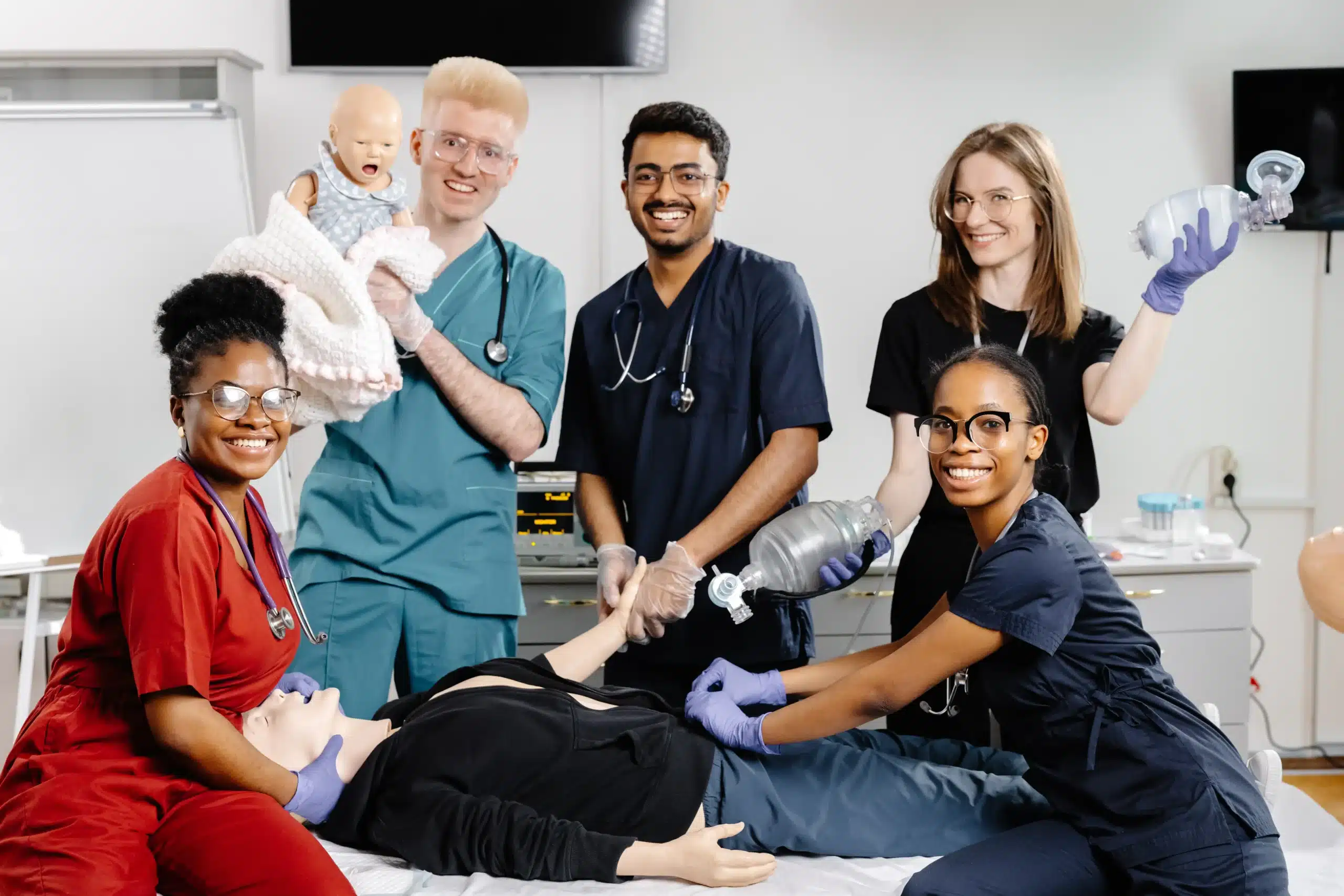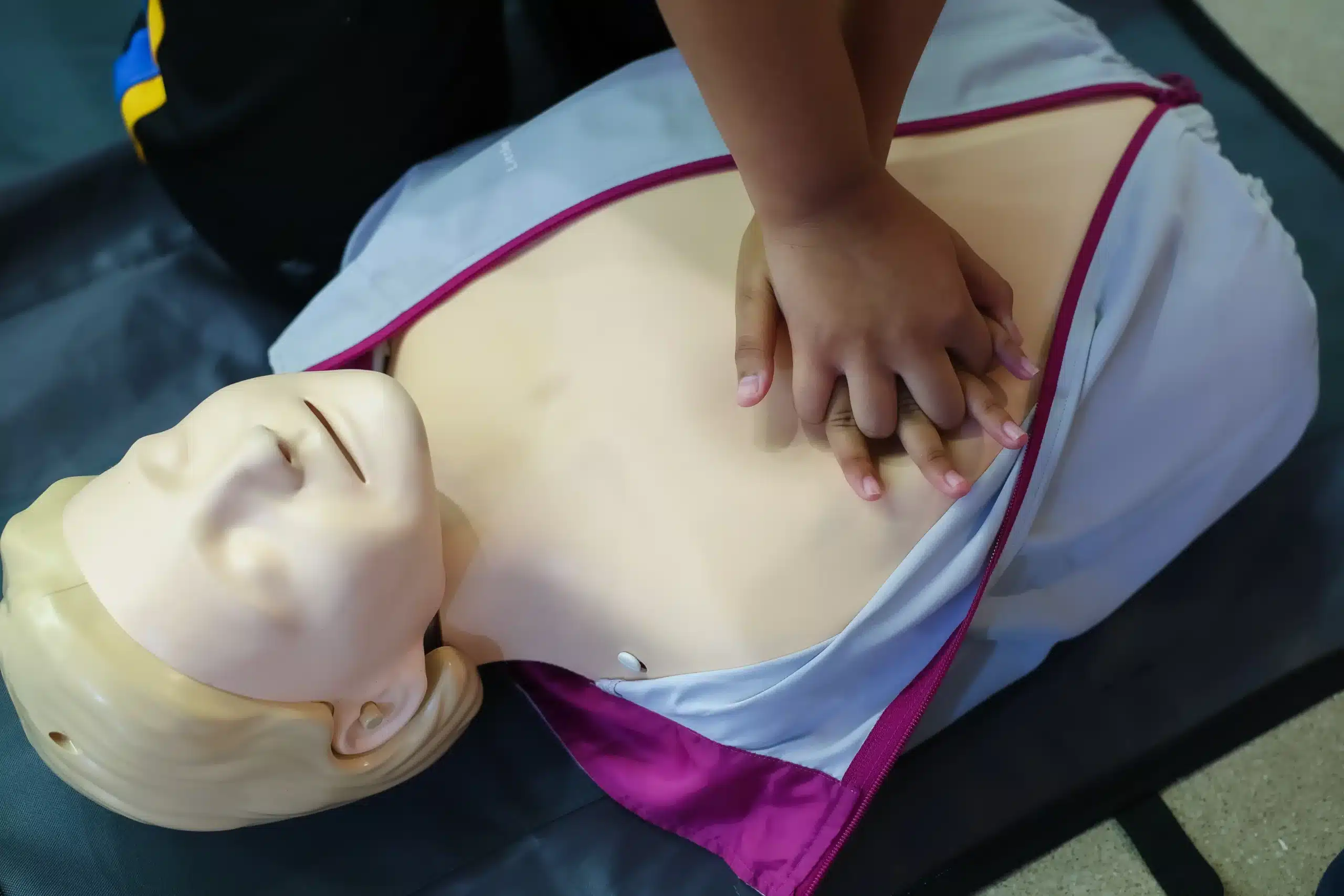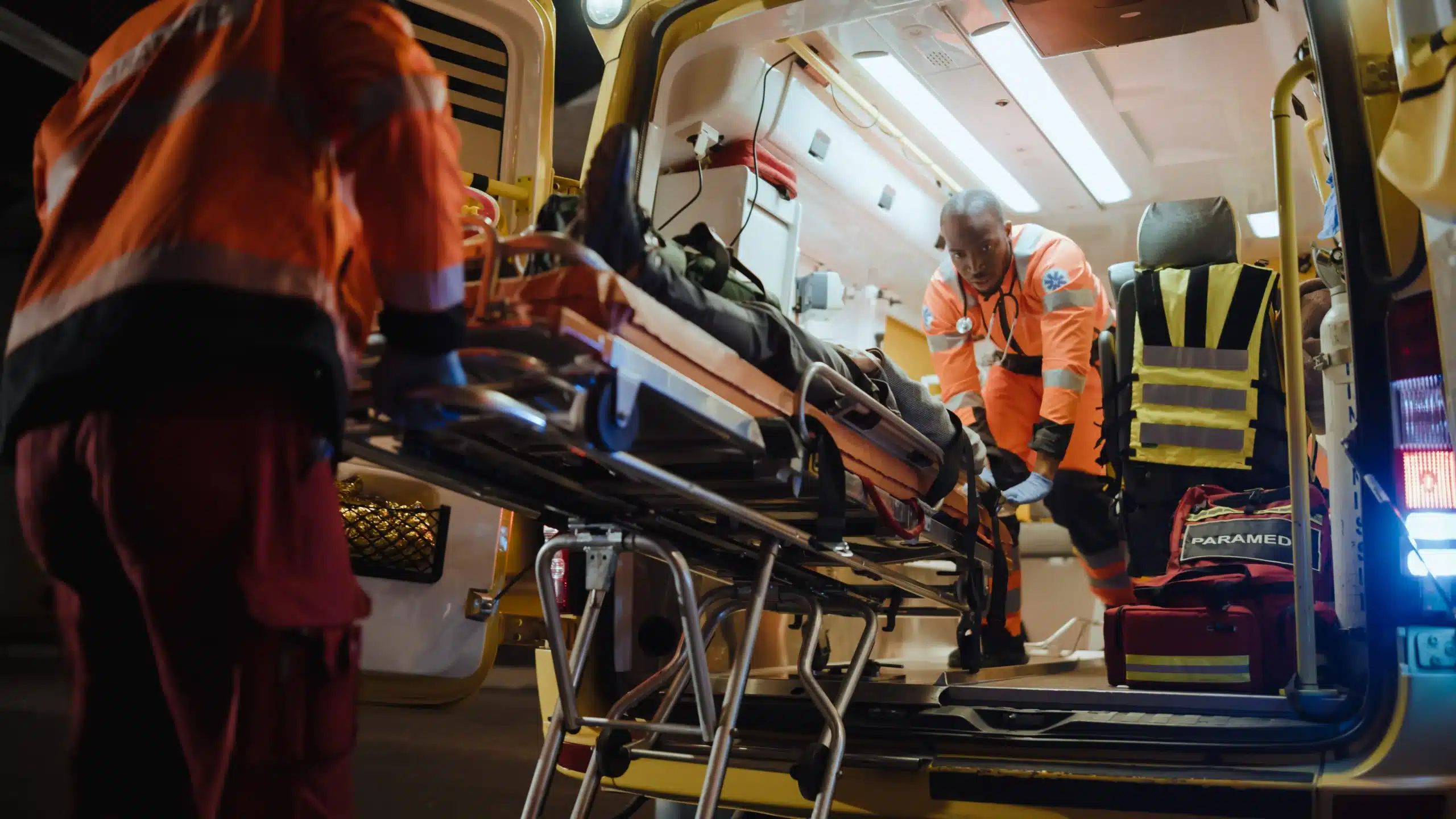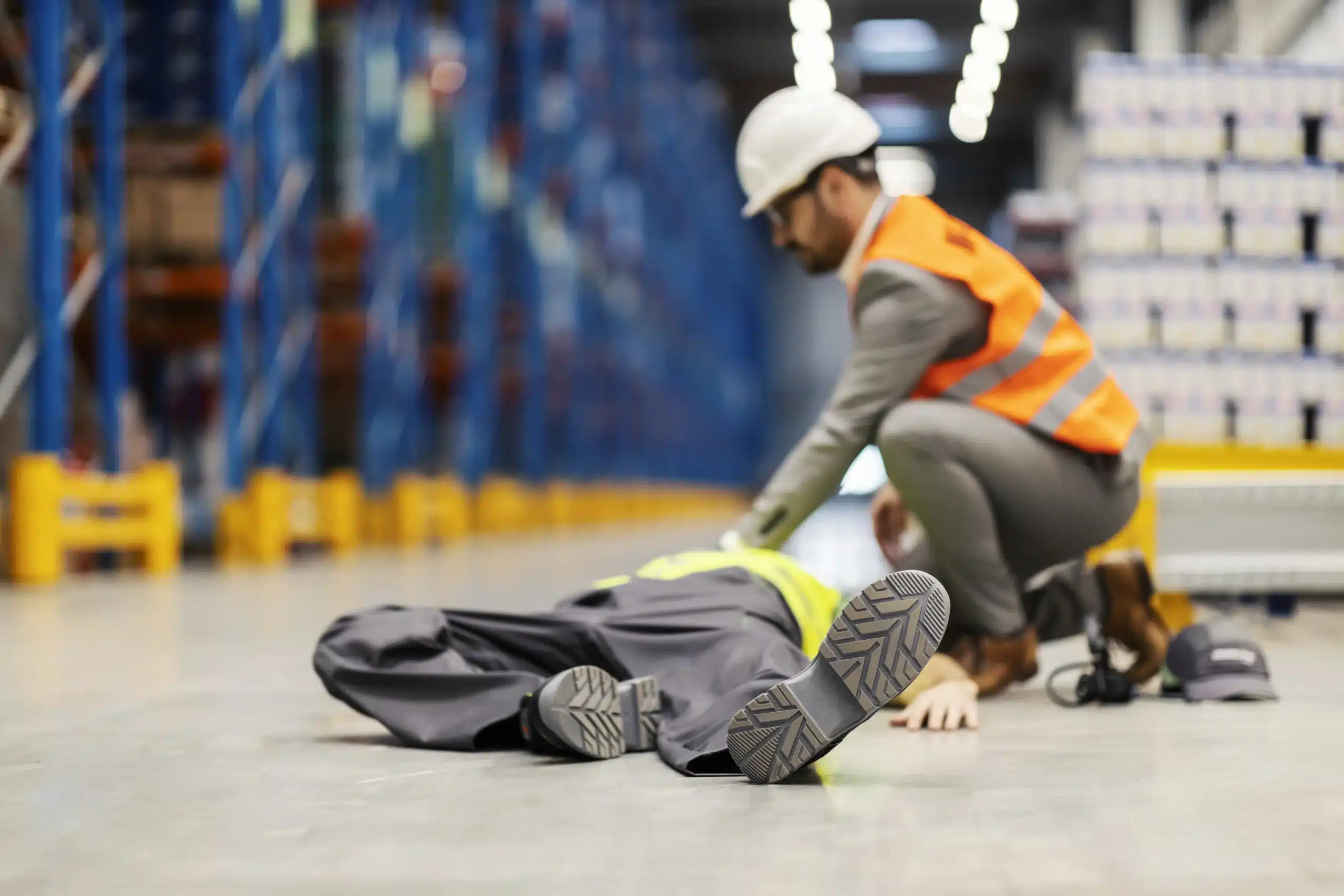Life is full of unexpected events, and sometimes, those events require quick thinking and action, especially when it comes to medical emergencies. First-aid classes in Visalia empower you to handle those unexpected situations with confidence. This article serves as your comprehensive guide to first-aid training in Visalia. We’ll cover everything from the basics of first aid to more advanced certifications like BLS, ACLS, and PALS. We’ll also discuss the importance of choosing a reputable training center, like Safety Training Seminars, and the benefits of American Heart Association certification. Whether you’re looking to enhance your resume, improve workplace safety, or simply be prepared for anything, this article will help you find the right first-aid class in Visalia.
Key Takeaways
- First aid skills are for everyone: Learning first aid equips you to handle emergencies at home, in the workplace, or within your community. It’s a valuable life skill that builds confidence and preparedness.
- Choose the right course: Consider your specific needs and goals when selecting a first-aid class. Look for accredited providers offering certification from reputable organizations like the American Heart Association.
- Stay current: Maintain your first-aid certification and refresh your skills regularly. Continuing education ensures you’re up-to-date with the latest techniques and guidelines, maximizing your effectiveness in emergencies.
What are First-Aid Classes?
First-aid classes teach you how to handle medical emergencies. These courses cover essential skills, from treating minor injuries like cuts and burns to managing more serious situations, including heart attacks and strokes. Many first-aid classes also incorporate CPR training, giving you the skills to respond to life-threatening cardiac events. Whether you’re a parent, teacher, or simply want to be prepared, first-aid training empowers you to confidently provide immediate care when it matters most. Providers like Safety Training Seminars in Visalia offer comprehensive first-aid training to equip individuals with these vital skills.
Why is First-Aid Training Important?
Learning first aid is a smart move for many reasons. It gives you the confidence to act quickly in emergencies, potentially saving a life. Knowing how to control bleeding, stabilize a broken bone, or perform CPR can make all the difference while waiting for professional medical help. These skills are invaluable not only at home but also in the workplace. Safety Training Seminars emphasizes the importance of first-aid training for improving workplace safety. Plus, having first-aid certification on your resume can improve your job prospects, especially in fields like healthcare, education, and childcare. It demonstrates your commitment to safety and preparedness, qualities that employers value. For professional-level training, obtaining AHA certification is a widely recognized credential.
First-Aid Class Types
Choosing the right first-aid class depends on your specific needs and goals. Whether you’re a parent, a healthcare professional, or simply someone who wants to be prepared for emergencies, Visalia offers a variety of courses to equip you with the necessary skills. CPR Visalia also offers a low price guarantee, so you can find affordable, high-quality training.
Basic First Aid
Basic first-aid courses cover essential skills like treating minor injuries such as cuts, burns, and sprains. You’ll also learn how to manage more serious situations, including choking, allergic reactions, and recognizing the signs of a heart attack or stroke. This foundational training is invaluable for anyone looking to improve their ability to respond to everyday emergencies.
CPR Training
CPR training focuses on basic life support, a crucial skill for responding to heart failure emergencies. You’ll learn how to perform chest compressions, rescue breaths, and use an automated external defibrillator (AED). This training is essential for both home and workplace safety, empowering you to act quickly and potentially save a life in critical situations. Check out our CPR classes in Visalia for more information.
BLS, ACLS, and PALS Courses
For healthcare providers and those seeking more advanced training, courses like BLS (Basic Life Support), ACLS (Advanced Cardiovascular Life Support), and PALS (Pediatric Advanced Life Support) are available. These courses delve deeper into life-saving techniques, covering everything from airway management and intravenous access to treating cardiac arrest and other complex medical emergencies. See our BLS courses in Visalia to learn more.
EMSA Health & Safety Training for Childcare Providers
Childcare providers have a unique responsibility to ensure the safety and well-being of the children in their care. EMSA Health & Safety Training provides specialized instruction tailored to the specific needs of childcare professionals. This training covers essential topics like recognizing and responding to childhood illnesses, preventing injuries, and administering first aid in a childcare setting. It equips providers with the skills and confidence to handle emergencies effectively and maintain a safe environment for the children they look after. Contact us today to find the right course for you.
Top Visalia Training Centers
Finding the right training center is key to a positive learning experience. Here are a few reputable options for first-aid and CPR training in Visalia:
Safety Training Seminars
Safety Training Seminars in Visalia offers a range of American Heart Association courses, including BLS, ACLS, PALS, and CPR. They also provide additional courses like NRP and EMSA Childcare Health and Safety. Known for their excellent customer service and competitive pricing, they offer a Low Price Guarantee for their courses in Tulare County. Serving Visalia, Tulare, and Delano, they make high-quality training accessible. View their schedule and register for a course online.
Southern’s CPR & First Aid Training
Southern’s CPR & First Aid Training offers a comprehensive selection of CPR and first-aid courses. As an American Heart Association Authorized Training Center, they maintain high standards for instruction and certification. This ensures participants receive recognized credentials. Explore their offerings to find the right course for you.
Visalia CPR
Visalia CPR specializes in on-site training, bringing the instruction to your location. This convenient approach makes it easier for groups and individuals to learn essential, life-saving skills. As an authorized American Heart Association training center, they offer various courses to meet different needs.
American Red Cross Visalia Chapter
The American Red Cross provides various first aid and CPR training options. They offer flexible scheduling, including online courses, making it easier to fit training into your busy schedule. Their programs equip individuals with the skills and confidence to handle emergencies effectively.
What to Expect in a First-Aid Class
So, you’ve decided to take a first-aid class. That’s great! Knowing what to expect can help you feel prepared and confident going in. Here’s a glimpse into a typical first-aid class:
Course Duration and Content
First-aid classes in Visalia are designed to fit your schedule. You’ll find courses running seven days a week, catering to both individuals and healthcare professionals. Providers like Safety Training Seminars offer a range of schedules and often have classes available in both English and Spanish, making training accessible to a wider audience.
Hands-On Practice and Equipment
Don’t worry, you won’t just be sitting in a lecture! First-aid classes are very hands-on. Expect to practice your skills using manikins and realistic scenarios. This practical approach, emphasized by providers like Safety Training Seminars, helps you build the confidence to use your skills in a real emergency.
Assessment and Certification
After your training, you’ll be assessed on your understanding and skills. You’ll typically need to score above 80% to receive your certification, which is usually valid for two years. This ensures your skills are current. Check with your chosen training center for their specific requirements. Knowing the process beforehand helps you focus on learning and practicing those life-saving skills.
Credentials and Course Quality
Finding the right first-aid class involves more than just convenient scheduling. You want a course with high-quality instruction and a recognized certification. Here’s what to consider:
American Heart Association Certification
The American Heart Association (AHA) sets the standard for emergency cardiovascular care. Choosing an AHA-certified course like those offered at CPR Visalia ensures your training reflects the latest science-backed practices. This is essential for providing effective care in emergencies. AHA certification is widely accepted and respected, giving you confidence in your skills. CPR Visalia offers a range of AHA courses, from basic CPR to advanced life support.
Instructor Qualifications
Experienced, knowledgeable instructors significantly impact your learning. Look for training centers like Safety Training Seminars, where instructors are not only AHA-certified but also focused on a positive learning experience. Skilled instructors can adapt to different learning styles and answer your questions thoroughly, ensuring you grasp the material. CPR Visalia prioritizes excellent customer service, reflected in the quality of their instruction. They understand that clear communication and support are key to effective learning.
Training Center Accreditations
Accreditation by recognized organizations like the AHA demonstrates a commitment to quality and adherence to rigorous standards. CPR Visalia, as an authorized AHA Training Center, ensures their courses, facilities, and instructors meet these high standards. This guarantees you receive comprehensive, current training to handle real-life emergencies. Checking for accreditations helps verify the training center’s credibility and the value of your certification. You can explore BLS courses in Visalia offered through Safety Training Seminars, conveniently located in Tulare County.
Cost and Registration
Knowing the cost and how to register can help you plan for your first-aid training. Here’s what to expect:
Course Fees and Low Price Guarantees
Course fees will depend on the type of class you choose. Basic first-aid and CPR classes are typically less expensive than advanced courses like ACLS or PALS. Safety Training Seminars offers competitive pricing and a low price guarantee in Tulare County. Check with your chosen training center for specific pricing.
Additional Expenses (Materials, Certifications)
Factor in potential additional costs. Some centers may have separate charges for training materials, like manuals or pocket masks. There might also be a certification processing fee. Ask about these potential extras when you contact the training center.
Online Enrollment
Many training centers offer convenient online enrollment. This streamlined process saves you time and lets you quickly secure your spot. Browse available courses and register online.
Flexible Class Times
Look for training centers with flexible class times to accommodate your schedule. Many centers offer weekend and evening classes. Safety Training Seminars offers classes seven days a week, making it easier to fit first-aid training into your busy life.
Benefits of First-Aid Training
Knowing what to do in a medical emergency can make all the difference. First-aid training empowers you to respond effectively and confidently, whether at home, at work, or out in the community. Let’s explore some key advantages of becoming certified.
Personal and Family Safety
First-aid training equips you with the skills to handle medical emergencies involving your loved ones. From minor cuts and burns to more serious situations like choking or allergic reactions, you’ll be prepared to provide immediate care until professional help arrives. This can significantly impact the outcome, potentially saving lives. Think of it as a vital life skill, similar to knowing how to swim or change a tire—essential for navigating unexpected challenges. For families with young children, elderly relatives, or those with specific medical conditions, first-aid training offers an added layer of security and peace of mind. Our BLS courses in Visalia are a great place to start.
Professional Development
In many professions, first-aid and CPR certification is a valuable asset. It enhances your resume and demonstrates a commitment to workplace safety. For healthcare professionals, it’s often a mandatory requirement, but even in other fields, these skills can create new opportunities. Employers value employees who can take charge in emergencies, and first-aid training can give you a competitive edge. It shows initiative, responsibility, and genuine concern for the well-being of others. Plus, certifications from organizations like the American Heart Association are widely recognized and respected.
Community Impact
First-aid training has a ripple effect, extending beyond personal and professional benefits to positively impact the entire community. When more people are trained, the community becomes better equipped to handle emergencies, creating a safer environment for everyone. Bystanders trained in first aid can be the crucial link between an accident and the arrival of professional medical responders. This immediate intervention can significantly improve outcomes, especially in time-sensitive situations. Consider first-aid training an investment in your community’s well-being, fostering a culture of preparedness and resilience. Our low price guarantee makes training accessible to everyone in Tulare County. Contact us to learn more about our classes and how you can make a difference.
Choose the Right First-Aid Class
Finding the right first-aid class boils down to two key steps: figuring out what you need and then checking out what different courses offer.
Assess Your Needs and Goals
Before you jump into a first-aid class, think about why you want the training. Are you required to get certified for your job, a volunteer gig, or a professional license? If so, reach out to that organization. They can tell you exactly which certifications you need. This is important because different jobs have different requirements. For example, a healthcare provider will need more advanced training than someone who wants basic first aid knowledge for their family’s safety. If you’re learning first aid for personal reasons, think about what situations you want to be prepared for. Are you a parent wanting to handle childhood emergencies? Do you enjoy outdoor activities and want to be prepared for wilderness injuries? Knowing your goals will help you pick the right class. BC First Aid offers helpful advice.
Compare Courses and Providers
Once you know what you’re looking for, compare courses. Look at different providers in your area, like Safety Training Seminars in Visalia, which offers a range of American Heart Association courses, including CPR, BLS, ACLS, and PALS. Another option is Southern’s CPR & First Aid Training, also in Visalia. They’re an authorized American Heart Association Training Center and offer classes seven days a week in both English and Spanish. When comparing, consider class schedules, cost, the instructor’s experience, and whether the training center is accredited. CPR Classes in Visalia offers a good overview of some local options. Also, check if the provider offers a low price guarantee, like Safety Training Seminars’ Low Price Guarantee. And don’t forget customer service! A provider with extended customer service hours, like Southern’s CPR, can be helpful if you have questions. If you are looking for BLS courses in Visalia, visit the Safety Training Seminars website to view the schedule.
Maintain Your First-Aid Certification
Keeping your first-aid skills sharp isn’t a one-time thing. It requires staying up-to-date on the latest procedures and maintaining your certification. This section covers everything you need to know about renewals and continuing education.
Renewal Requirements and Processes
First-aid certifications, like those from the American Heart Association, are typically valid for two years. To maintain your credentials and ensure your skills are current, you’ll need to renew your certification before it expires. Check your certification card for the expiration date and mark your calendar to give yourself plenty of time to find a renewal course. Don’t let your certification lapse! Registering for a renewal course well in advance prevents any gaps in your qualification. CPR Visalia offers a variety of courses with flexible scheduling to make this process convenient.
Continuing Education
Even if your certification isn’t due for renewal yet, continuing education in first aid and CPR is a smart move. Think of it as a tune-up for your lifesaving skills. Refresher courses help you stay on top of any changes in guidelines or techniques, ensuring you’re prepared to provide the most effective care in an emergency. Continuing education can also be beneficial for career advancement, especially in healthcare settings. Many employers value the commitment to ongoing training demonstrated by up-to-date certifications. Plus, the hands-on practice and realistic scenarios often included in these courses reinforce essential skills and build confidence. Whether you’re a healthcare professional, a childcare provider, or simply someone who wants to be prepared, continuing education in first aid and CPR is a valuable investment.
Common First-Aid Class Misconceptions
Let’s clear up some common misconceptions about first-aid training. These myths can prevent people from seeking the training they need to help in an emergency.
One persistent myth is that slathering butter or oil on a burn is a good idea. It’s not. These home remedies can actually trap heat and worsen the injury. A good first-aid course will teach you the proper way to treat burns—cooling the area with cool (not icy) water and covering it with a sterile dressing. Another misconception is that first aid replaces professional medical care. It doesn’t. First aid is meant to stabilize a situation until paramedics arrive. Think of it as buying time, not a cure.
Some people think CPR is only for adults. This isn’t true. Children and infants may also need CPR, and the techniques vary depending on age. A comprehensive first-aid class will cover these differences. Some also believe that first aid is too complicated for the average person. Most first-aid classes are designed to be accessible to everyone, regardless of background. They break down complex information into easy-to-understand steps.
Finally, there’s the idea that only medical professionals need first-aid training. Anyone can benefit from learning these essential skills. From parents and teachers to office workers and construction workers, knowing first aid can make a real difference. Contact us at Safety Training Seminars to learn more about our first aid and CPR courses.
Related Articles
- Find First-Aid Classes Near Me: Your Practical Guide – Visalia CPR Classes
- Why Workplace CPR and First-Aid Training Matters
- First-Aid Training in Tulare: Your Complete Guide – Visalia CPR Classes
- Pediatric CPR & First-Aid Training in Tulare – Visalia CPR Classes
- CPR Renewal in Visalia: Your Complete Guide – Visalia CPR Classes
Frequently Asked Questions
What’s the difference between first aid and CPR? First aid addresses a broader range of injuries and illnesses, from minor cuts to recognizing stroke symptoms. CPR specifically focuses on life-saving techniques for cardiac arrest and breathing emergencies. Both are valuable skills, and many courses combine them.
How do I choose the right first-aid class for me? Consider your specific needs. Are you looking for basic knowledge for personal use, or do you need certification for a job? Healthcare providers require more advanced training than someone wanting basic family preparedness. Check out different course descriptions and providers to find the best fit. Safety Training Seminars in Visalia offers various options, from basic to advanced certifications.
How long is a typical first-aid certification valid? Most first-aid certifications are valid for two years. Check your certification card for the exact expiration date. It’s essential to renew your certification before it expires to maintain your skills and credentials.
What if I need first-aid training for my workplace? Many training centers offer on-site group training, bringing the instruction directly to your workplace. This can be a convenient and cost-effective way to train your team. Contact providers like Safety Training Seminars to discuss your specific workplace needs.
How can I stay up-to-date on first-aid practices after I’m certified? Even after getting certified, consider refresher courses or continuing education opportunities. Guidelines and techniques can change, so staying current ensures you’re prepared to provide the most effective care. Plus, ongoing training demonstrates a commitment to professional development.
